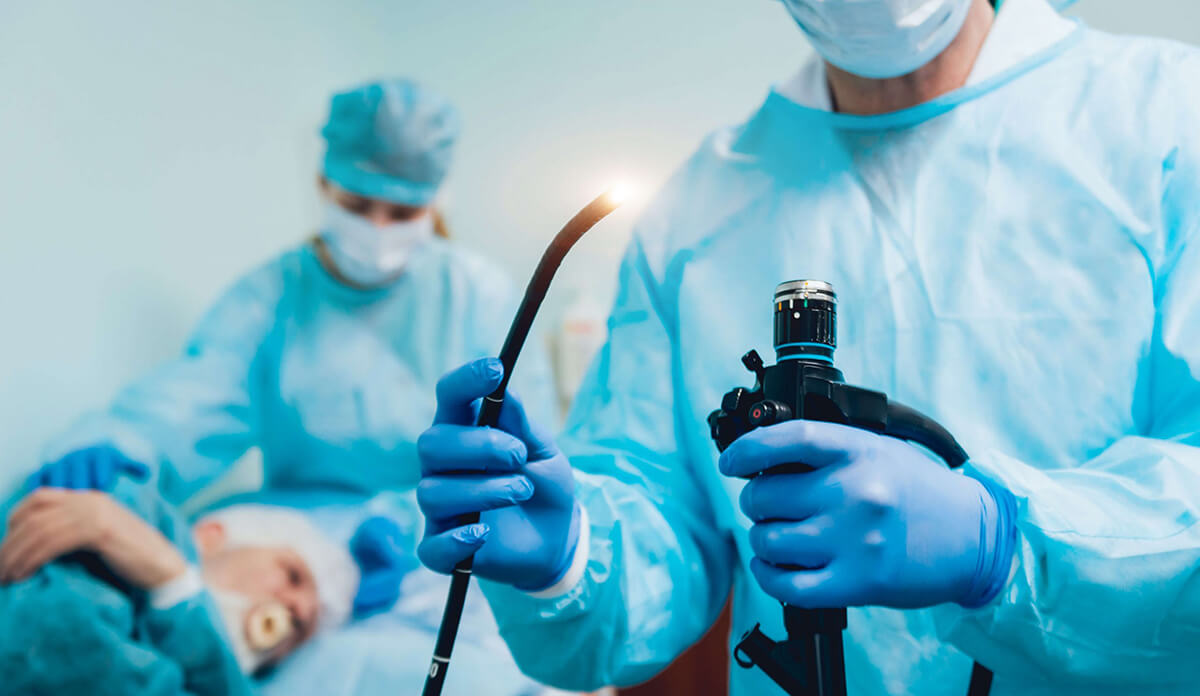Calls for Ukraine
Calls for Europe
Calls for USA

Statistics show that sigmoid colon cancer accounts for approximately a third of cases of all intestinal cancer pathologies. Most often, this type of cancer occurs in men aged 40 to 60 years. This pathology is a form of colorectal cancer.
Sigmoid colon cancer is an oncological disease in which a tumor forms in the sigmoid colon. The sigmoid colon is a part of the large intestine about 40 cm long that connects to the rectum. It plays an important role in the absorption of water and the formation of feces. This is a dangerous disease that, if left untreated, can be fatal. The more actively the disease develops, the harder it is to fight it. However, today, thanks to the achievements of modern medicine and the use of new techniques, advanced oncology clinics offer fairly effective treatment for sigmoid colon cancer even in the later stages of the disease.
The range of factors that can provoke the development of this pathology is quite wide. One of the reasons that explains the prevalence of tumors in the sigmoid colon is its location. With insufficient intestinal motility, fecal stagnation often occurs in this area. And this, in turn, causes circulatory problems and the absorption of toxins into the blood. As a result, adenomatous polyps are formed, the cells of which can subsequently become malignant. Also, among the factors that can give impetus to the development of a malignant neoplasm of the sigmoid colon, doctors indicate:
Lack of exercise during the day and obesity contribute to the occurrence of sigmoid colon cancer.

The peculiarities of the location of this fragment of the intestine and the fact that the sigmoid colon is densely covered with peritoneum lead to the fact that the tumor does not manifest itself at the initial stages of formation. It is believed that the relatively asymptomatic period of development of a malignant tumor is 5-15 years. How active the further process will be depends on the type of cancer, general health, characteristics of the immune system and other factors.
Manifestations of the disease are initially nonspecific and may be perceived as a minor disruption of the digestive process. This often becomes the reason that the patient ignores the symptoms, does not consult a doctor, and as a result, the disease becomes more difficult to treat. Symptoms of sigmoid colon cancer include:
As the cancer develops, the symptoms expand. The following signs are often observed:
Painful sensations can be dull or cramping in nature, can be quite strong or dull, aching. Also, pain with sigmoid colon cancer can be caused by the process of defecation.
However, it is impossible to diagnose sigmoid colon cancer only by the characteristics of pain. It is necessary to pay attention to other symptoms, although they are also not specific and can occur with a number of other pathologies. To find out what exactly caused the deterioration in health, it is necessary to see a doctor and undergo an examination.
Based on the growth characteristics of the tumor, doctors distinguish several types of sigmoid colon cancer:
Oncologists also distinguish several varieties associated with histological features:
First, cancer cells travel to the lymph nodes. Metastases then spread to distant tissues. Most often, metastases are found in the liver. This is due to the fact that blood from the intestines enters the liver through the portal vein, and cancer cells can be carried into this organ with the blood.
In addition, with sigmoid colon cancer, metastases occur in the lungs, can affect the spine, and grow into nearby nerves, vessels, and other parts of the intestine.

Examination for suspected sigmoid colon cancer may include the following methods:
Accurate diagnosis allows doctors to determine the location of the tumor, its size, stage, and the degree of involvement of other organs. This helps the oncologist choose the optimal treatment strategy.
Treatment of sigmoid colon cancer is a complex process that requires an integrated approach. The priority method is surgery, but doctors can also additionally use chemotherapy, targeted therapy, and immunotherapy. Radiation therapy for colorectal cancer is rarely used. However, in some cases it can also be used before or after surgery.
CyberKnife can be used to remove metastases in the lymph nodes and liver. This is robotic stereotactic radiosurgery, which involves exposing certain areas to high doses of radiation.

Surgery for sigmoid colon cancer is the main method of treatment. It allows doctors to remove the tumor, as well as nearby tissue and lymph nodes. The extent of the operation depends on the stage of the disease. For small tumors in the early stages of the disease, surgeons perform minimally invasive laparoscopic surgery. It involves removing the tumor through small incisions in the abdominal wall.
In later stages of the disease, open surgery may be required, during which the entire sigmoid colon is removed. In this case, the surgeon creates an opening in the anterior abdominal wall (stoma) through which feces will pass. Subsequently, reconstructive surgery may be performed to restore the natural outflow of feces.
Chemotherapy can be used before or after surgery, or as palliative treatment. It aims to destroy cancer cells throughout the body. Special drugs that are introduced into the body stop the growth of cancer cells and destroy them. Oncologists may prescribe chemotherapy before or after surgery. The doctor selects medications and their dosages individually.
For colorectal cancer, treatment may also include the use of targeted drugs. These are substances that specifically target tumor cells and produce much fewer side effects compared to traditional chemotherapy.

An innovative and fairly effective method of combating cancer is the use of cancer vaccines. Scientists and doctors from different countries are working to develop vaccines that could prevent the development of malignant diseases. To date, there are already several vaccines that are designed to prevent and treat cancer, and are already showing good results.
Both vaccines are well tolerated and can be used as part of complex treatment in conjunction with other methods. Their use can significantly improve treatment results and reduce the likelihood of relapse of sigmoid colon cancer.
More detailed information about the use of cancer vaccines can be obtained from the MedTour coordinating doctor.
The prognosis for this disease differs markedly depending on the stage. If the patient seeks medical help in the initial stages, there is a high probability of complete tumor removal and recovery. In later stages, when lymph nodes are already involved and metastases are present, the prognosis becomes noticeably worse. However, survival for sigmoid colon cancer largely depends on the specific situation and on how correctly the treatment is selected.
With timely diagnosis and proper treatment, the five-year survival rate is more than 90%. At the second stage, the probability of living more than 5 years is about 80%, at stage 3 – about 30%. When treatment begins at stage 4, only about 10% live more than five years.
However, modern treatment methods make it possible to continue the fight even in difficult situations. Today, specialized oncology centers offer quite effective methods that can prolong the patient’s life and significantly improve its quality. By contacting leading cancer treatment clinics, you can use every possible chance to fight the disease.
Doctors recommend that patients follow a diet after surgery. In the first two weeks after surgery, you should eat only easily digestible, warm foods with a soft consistency. Then gradually the food becomes more varied and familiar, but some restrictions remain.
Doctors recommend avoiding fried, spicy, smoked foods, milk, and alcohol. Avoid foods that cause excessive gas or constipation. It is advisable to eat food 5 times a day in small portions. For cooking, it is better to use boiling, stewing, and baking. The doctor who will be treating your illness will tell you in more detail about the nuances of nutrition.
On the MedTour website you can see a list of clinics that treat intestinal tumors. We work with the best medical centers in different countries, which have the most advanced oncology departments. You can seek advice or undergo treatment in such well-known clinics as:
To learn more about the possibility of treatment at leading medical centers, contact our coordinating doctor.
Contacting a qualified doctor is an important condition for successful treatment of diseases. The level and qualifications of the doctor largely determine how correctly the treatment tactics will be chosen. The MedTour platform cooperates with the best specialists in the treatment of oncological diseases who have extensive experience and are constantly improving their skills.
The MedTour coordinator will help you choose a doctor who can choose the optimal treatment taking into account the characteristics of your condition. Contact us to find out about doctors who specialize in treating sigmoid cancer.
Please rate the work of MedTour
